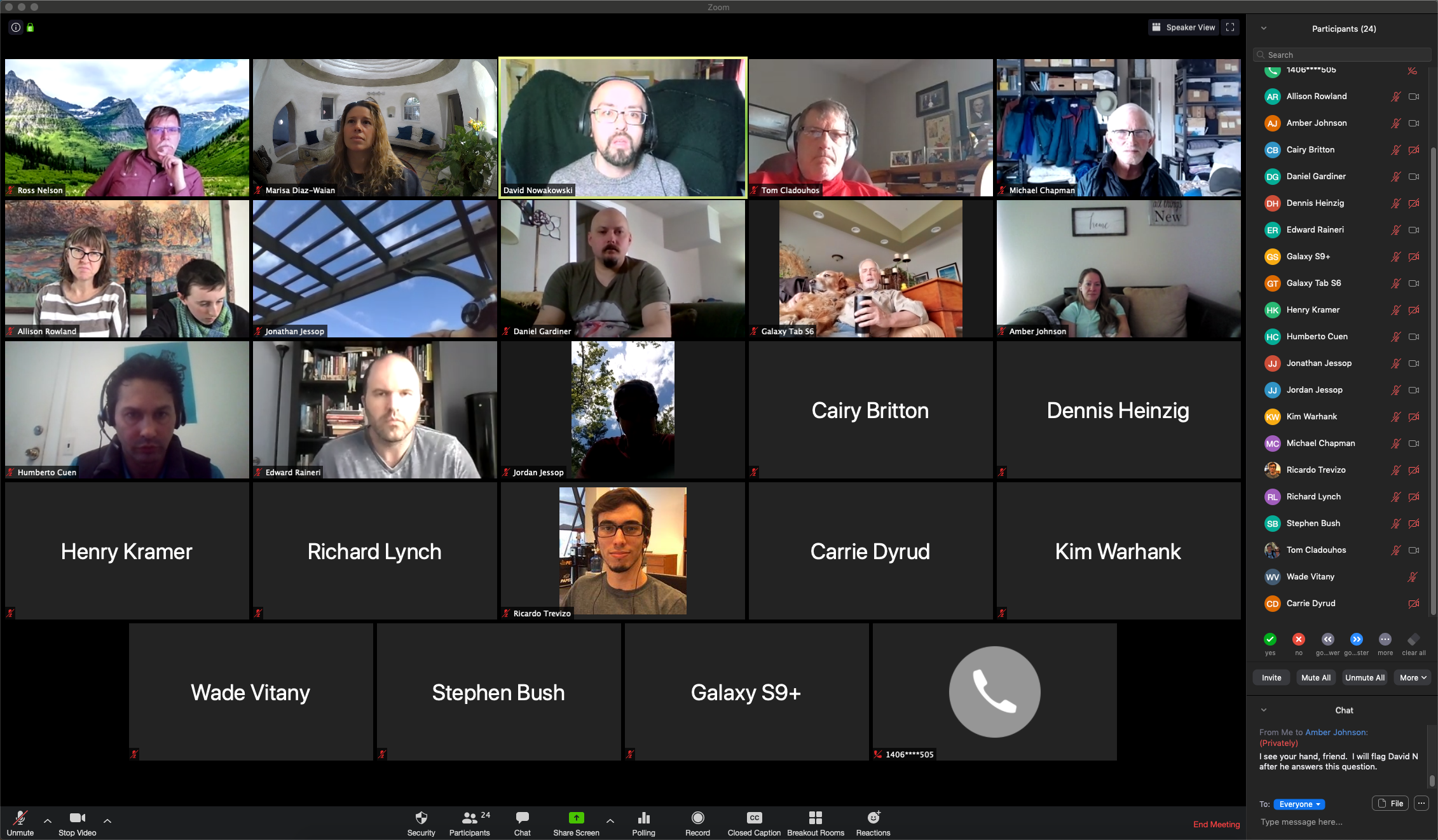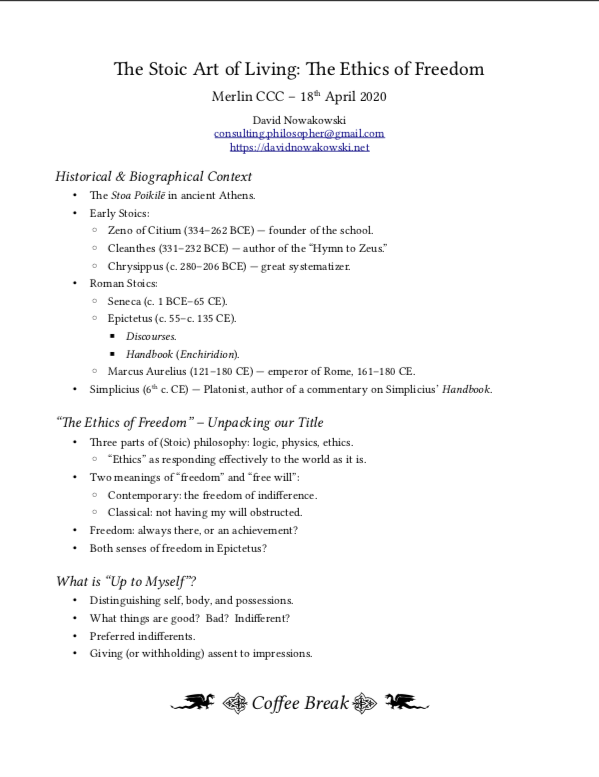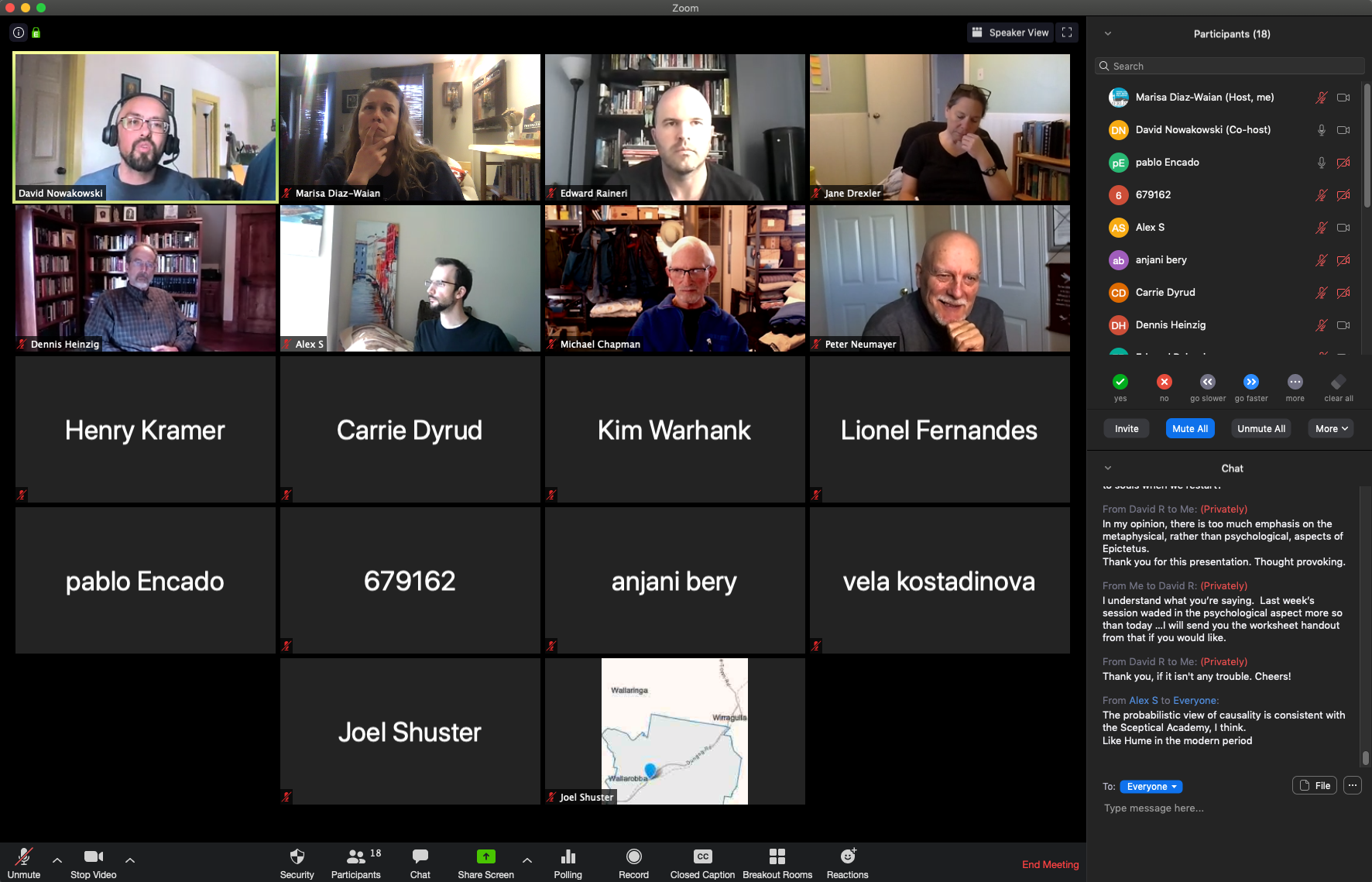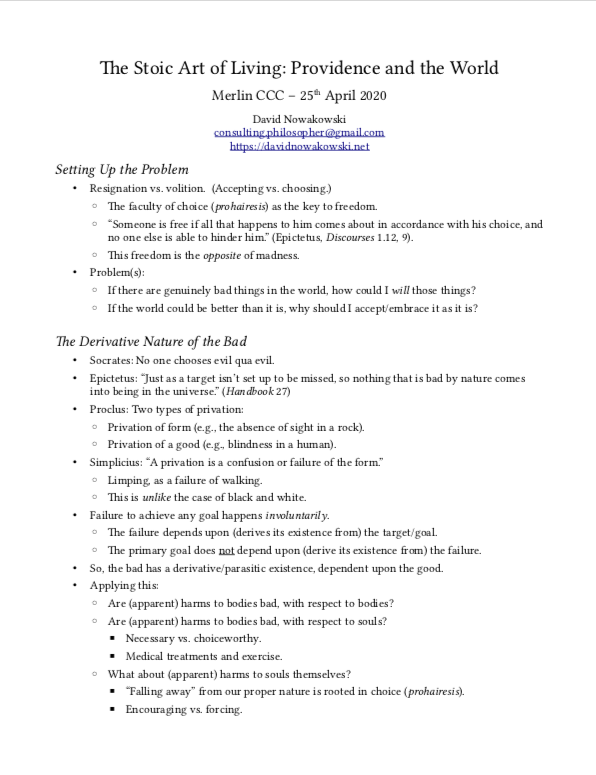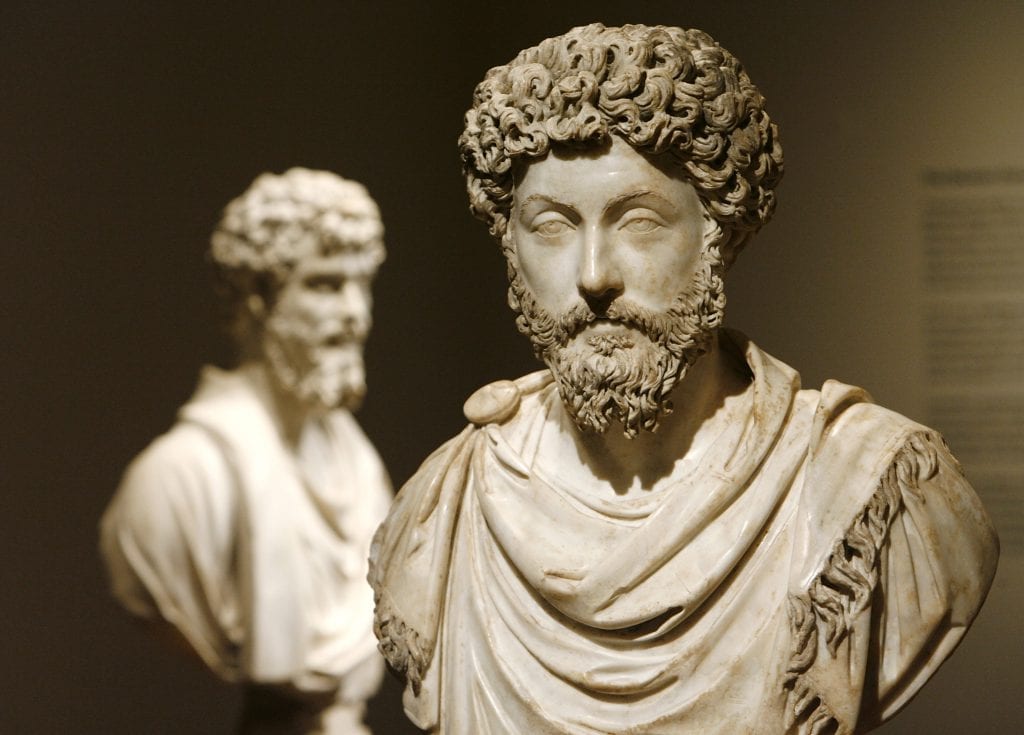
In these two 2½-hour ZOOM workshops led by philosopher David Nowakowski we investigated Stoic ethics, providence and the world. These two workshops represented our first ZOOM workshops of the year (or ever for that matter — ZOOM was new to us as we typically hold in-person workshops). However, we were grateful to have so many workshop attendees join us and participate in the conversation! An overview of what sorts of questions we explored in each workshop is provided below, followed by a list of resources and readings.
The Freedom of Ethics (Overview)
The Stoic philosopher Epictetus (50–135 CE) spent the first half of his life literally as a slave—the property of other humans—in and around the city of Rome. After purchasing his release from slavery, he went on to become a famous and highly-regarded teacher, promising to explain what freedom really means.
This workshop on the Stoic art of living investigated Stoic ethics, understood in the very broad, and traditional sense of “how to act effectively in the world.” More specifically, it focused on the Stoic perspective on the ethics of freedom. Grounded in the work of the later Greek and Roman Stoics (including Epictetus and Seneca), we explored such questions as:
- Meanings of “freedom,” and different ways of talking about “free will.” Is freedom a starting point for our actions, or is it an achievement that comes after diligent effort?
- What sorts of things are “up to us” in life, and what things are not (i.e., control, no control)? This is one of the most fundamental questions in Stoic ethics, and we will see why it’s so important.
- Where does human suffering come from? How can changing the ways we perceive and think about the world help us to suffer less? Here, we’ll find some illuminating comparisons and contrasts with traditional Buddhist thinking?
- Why do we get angry? When is anger appropriate, and when is it misguided?
- Drawing on the lessons learned about anger, we also looked at fear: where does fear come from? What can we do — both in the moment, and in advance — to help ourselves respond effectively to challenging circumstances?
Providence & the World (Overview)
In this workshop on the Stoic art of living we went “under the hood” to explore what philosophical machinery might be needed to get Stoic ethical views to actually work. The ancient Stoics, like philosophers of other traditions, described a world that was characterized by providence, and they defended that worldview with a variety of arguments. There are two basic claims:
- The world is basically, essentially, at bottom, good.
- The Gods exist, and take an interest in each of us as individuals, personally.
These views, along with a helping of determinism in the physical world, are supposed to provide the foundation we need for Stoic ethics. (The first claim is also the direct opposite of the Buddhists’ description of the world as basically, at bottom, characterized by suffering.). In this workshop, we explored such questions as:
- How the ancient Stoics defended these two positions. What are their arguments? And how, if we’re able to prove these two claims, do they help Stoic ethics make sense?
- How ancient philosophers from other traditions (especially Platonism) defended these same two positions, in very different ways. This will give us a sense for some alternative routes to the same destination.
- What happens if we reject either or both of these positions. Does it still make sense to act the way Epictetus and his fellow Stoics suggest, if we don’t share their belief in providence?
As we examined these issues, we looked at the ways that our beliefs about how the world is (i.e., physics) provide important foundations for how we should respond to the world (i.e., ethics).
Resources
(Workshop Handouts, Activities & Reading Recommendations)
About the Workshop Leader...
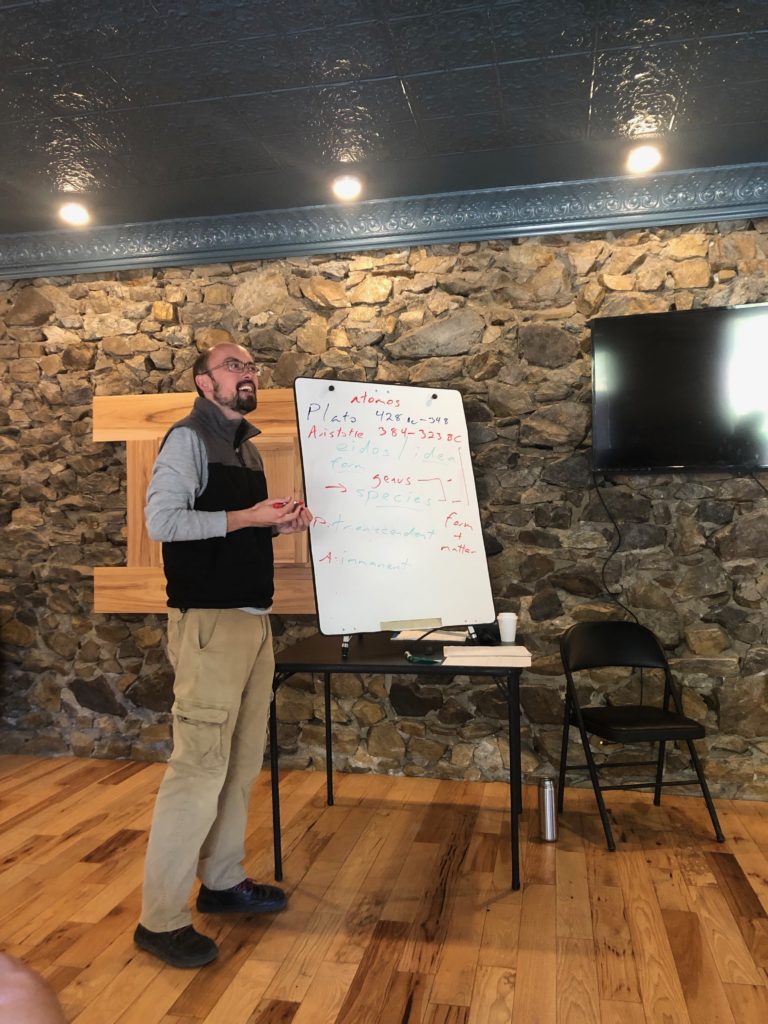
David is as a philosopher and educator whose professional work is dedicated to helping people of all ages and backgrounds access, understand, and apply the traditions of ancient philosophy to their own lives. A lover of philosophy and the great outdoors, David is currently building his own consulting practice and serves as a Philosophical Advisor and Consultant for Merlin CCC & Senior Mentor for scholars in the Merlin Fellowship Program.
David began studying ancient philosophies and classical languages in 2001, and has continued ever since. A scholar of the philosophical traditions of the ancient Mediterranean (Greece, Rome, and North Africa) and of the Indian subcontinent, reading Sanskrit, Latin, and classical Greek, he earned his Ph.D. in philosophy from Princeton University in 2014. His work has appeared in a variety of scholarly journals, including Philosophy East & West, Asian Philosophy, and the Journal of Indian Philosophy; as well as in presentations to academic audiences at Harvard, Columbia University, the University of Toronto, Yale-NUS College in Singapore, and elsewhere.
A hermit by nature and by committed choice, he balances contemplative solitude with his active work in teaching, counseling, and the healing arts. We are elated to be collaborating with David on our philosophy in the community activities, fellowships, and other Merlin projects.
Thank You’s

Thank you to P.L.A.T.O. (Philosophy Learning and Teaching Organization) for helping support our philosophy in the community programs and making events like this possible!

